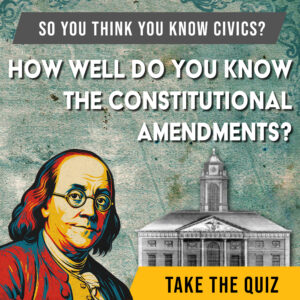
Test your civics knowledge with this short quiz. Click on the slider next to your answers under each question, but be careful—once you click on it, your answer is locked in! Like our favorite teachers, we encourage you to read through all the questions before you answer. Good luck!
Your email address will be used exclusively to provide updates and information about other O’Connor Institute programs. It will not be shared with third parties.

